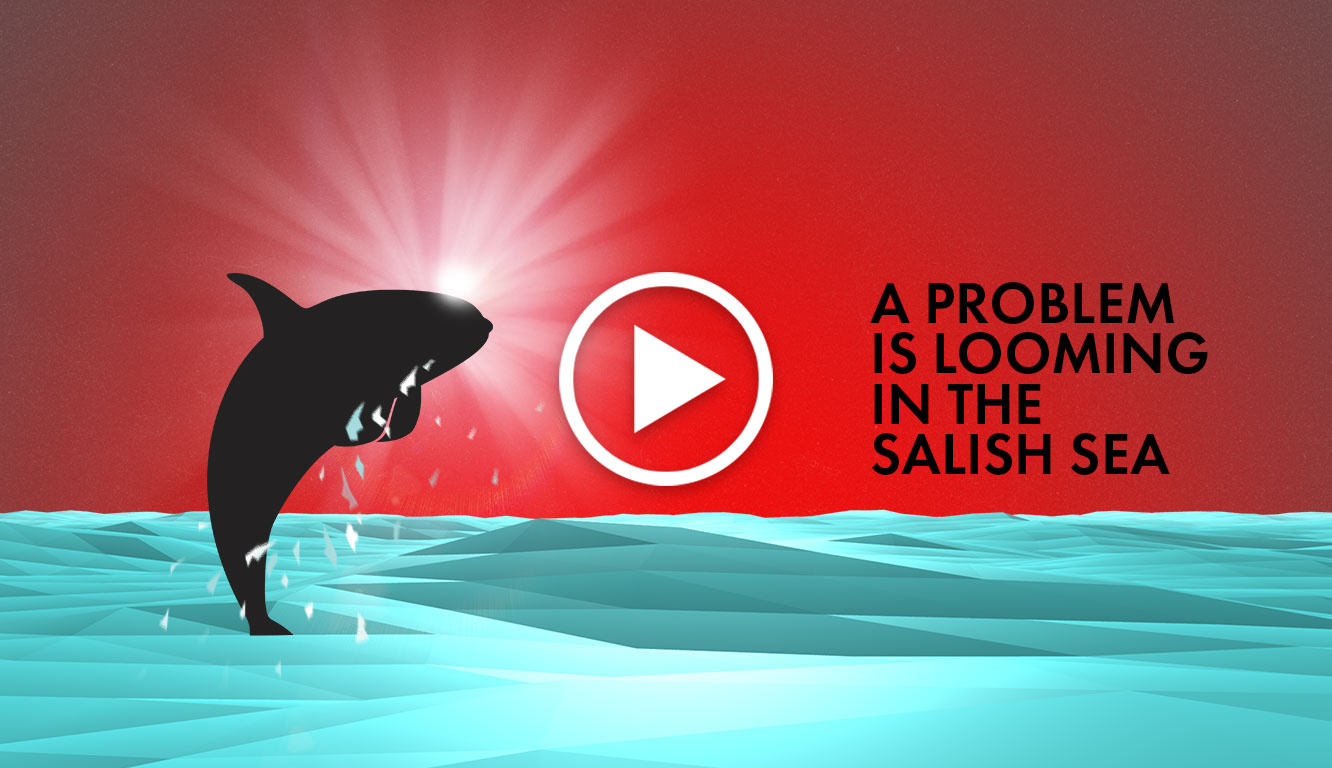GCT is proposing an alternative project that has been described as a smart, phased and environmentally responsible plan to provide extra container terminal capacity.
The Vancouver Fraser Port Authority’s Roberts Bank Terminal 2 (RBT2) project has been touted as the way to expand container capacity at Roberts Bank in Delta for over a decade. But critics think it will do far more harm than good — especially with regards to the aquatic environment.
That’s because RBT2 proposes to build a new island in the ecologically sensitive Salish Sea, on top of indigenous crabbing grounds. Marko Dekovic, vice president public affairs at Global Container Terminals (GCT), says the new landmass will not only disrupt these grounds but also block the path of many juvenile Chinook salmon from the Fraser River to the Pacific Ocean, depriving the southern resident killer whales access of their primary food source.
Watch: Port of Vancouver’s expansion project will disrupt important marine ecosystems
The Department of Fisheries and Oceans and Environment and Climate Change Canada (ECCC) have also expressed concerns about the project, as have local communities and Indigenous groups: “Their concerns relate to migratory shorebirds, crab and fish habitat and impacts on biofilm and orca populations with significant adverse residual and cumulative effects,” Dekovic adds.
RBT2 will require dredging and filling the Fraser River Estuary with 35 million cubic metres of fill for the 330-acre island, a 122-acre widened causeway and an eight-acre expanded tug basin. The Boundary Bay Conservation Committee argues that this process will destroy 137 acres of intertidal habitat and 279 acres of subtidal habitat; and by blocking a path of juvenile Chinook salmon, it causes them to be removed from shoreline habitats and exposed to predation.
Additionally, the proposed new port would encroach on mud flats used by migrating Western Sandpipers, part of a region that is considered one of Canada’s top Important Bird Areas.
While the Port of Vancouver is currently trying to focus attention on mitigation strategies such as a “causeway breach” passageway for the fish (which it previously declared would result in “insignificant flow restoration”), private sector operator GCT believes a more environmentally friendly option for an expansion at Roberts Bank is its Deltaport Fourth Berth Expansion (DP4).
DP4 has been described as a smart, phased and environmentally responsible plan to provide extra container terminal capacity. It would deliver additional capacity (two million TEUs) via the addition of a fourth berth within 56 hectares by building from the existing terminal back to the shore.
Also, DP4 would cost an estimated $1.6 billion in private funds compared to the $3.5 billion (or more) of public funds RBT2 may cost.
Since there is enough existing container capacity on Canada’s West Coast to meet demand well into 2030s, Dekovic is asking for all options to be evaluated fairly and transparently.
He says, “We are simply looking for a fair process that is indeed in the best interest of Canadians.”
This article originally titled GCT raises environmental concerns around Port of Vancouver expansion written by Robin Brunet was originally published in Vancouver Sun on June 22, 2021.
